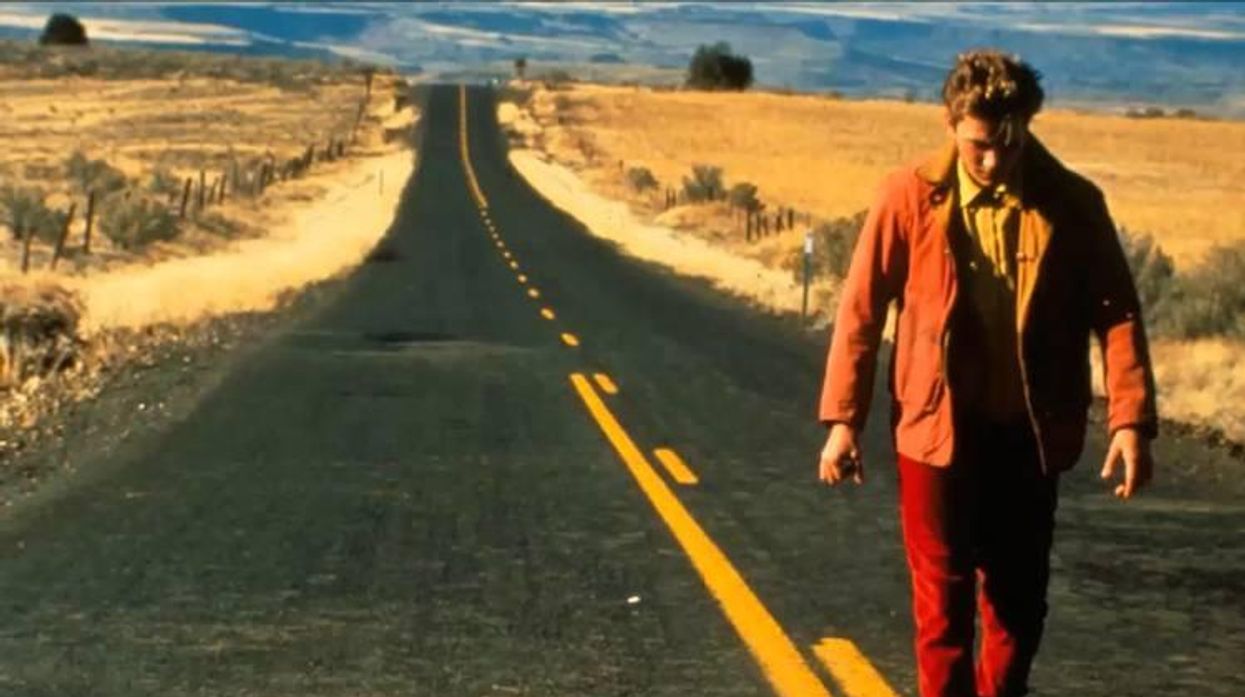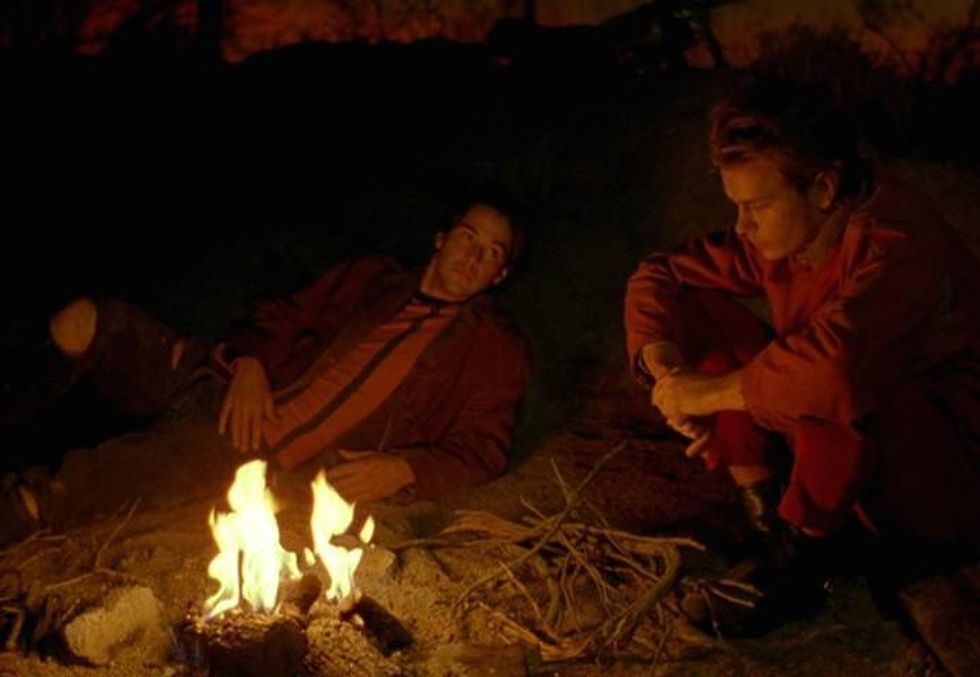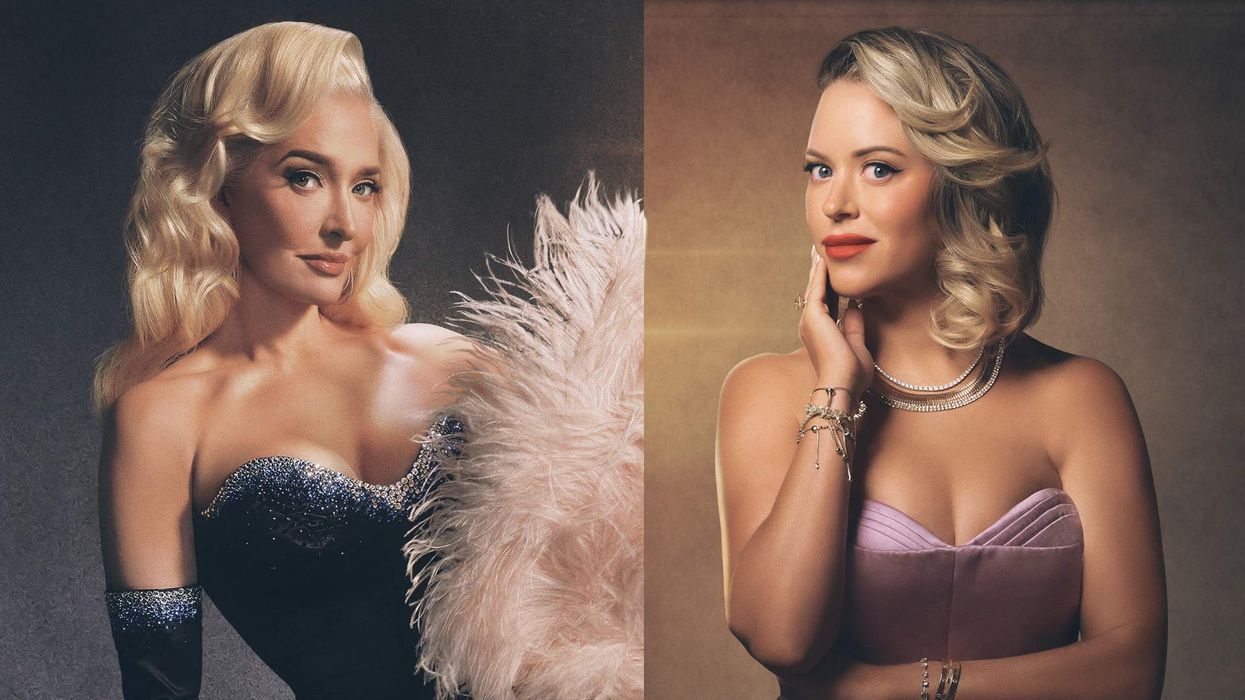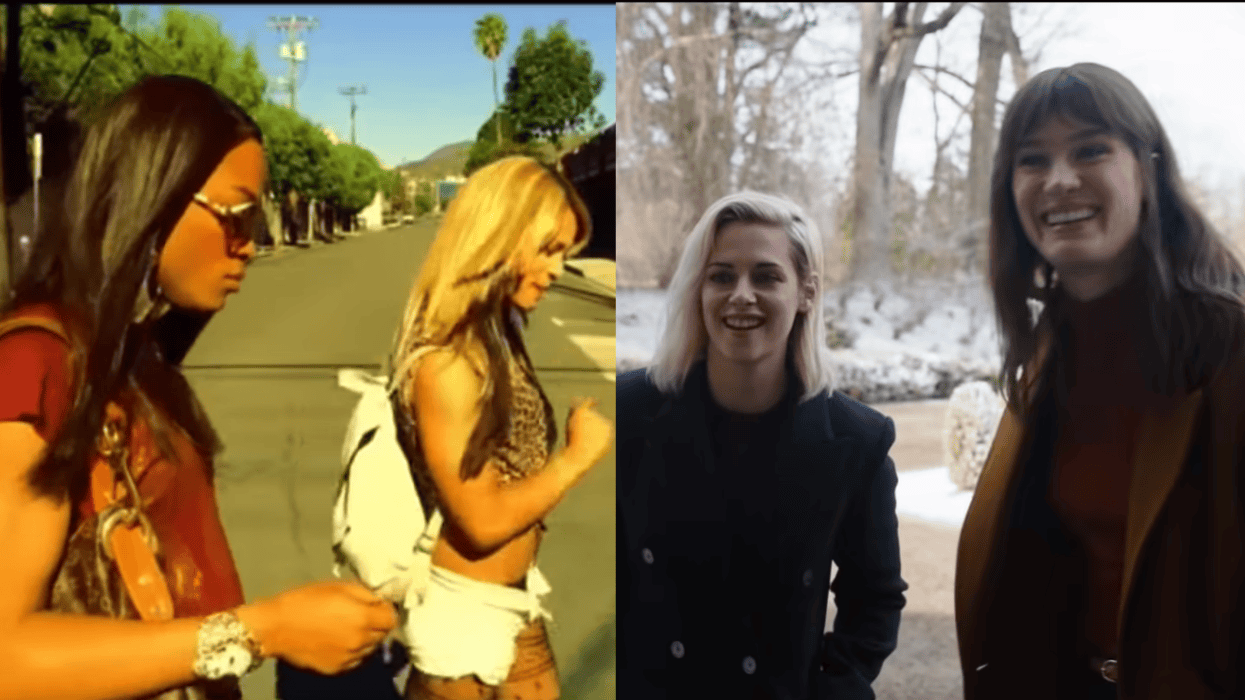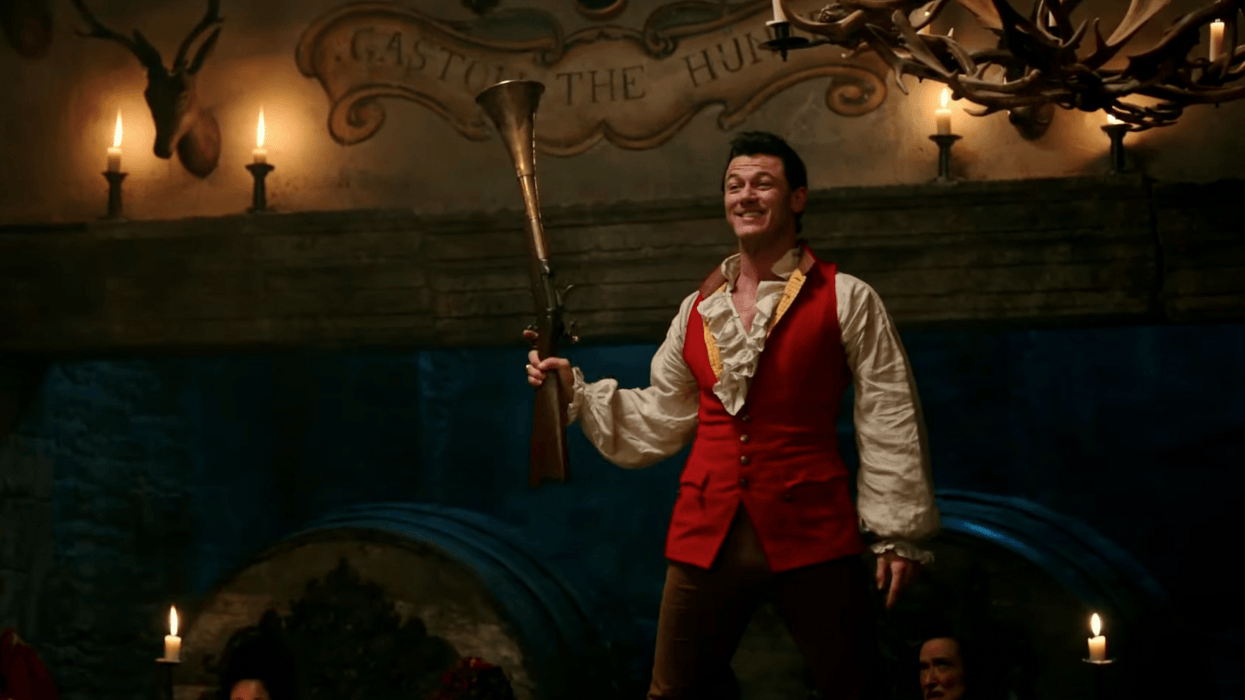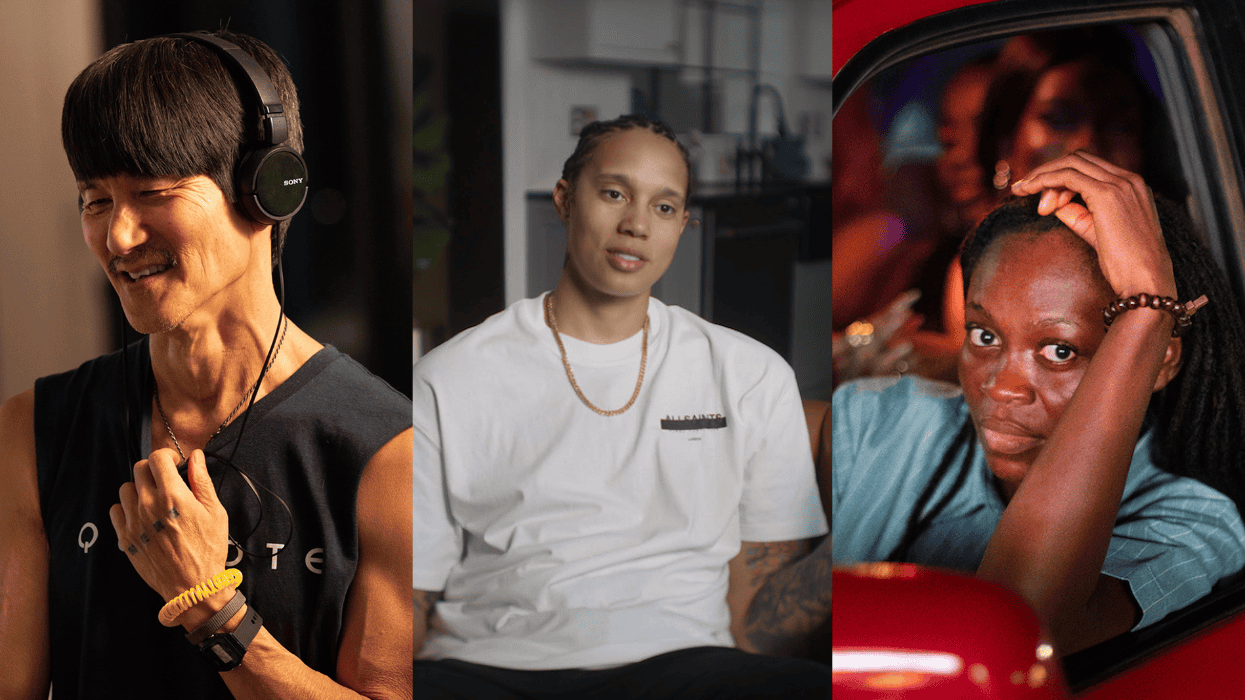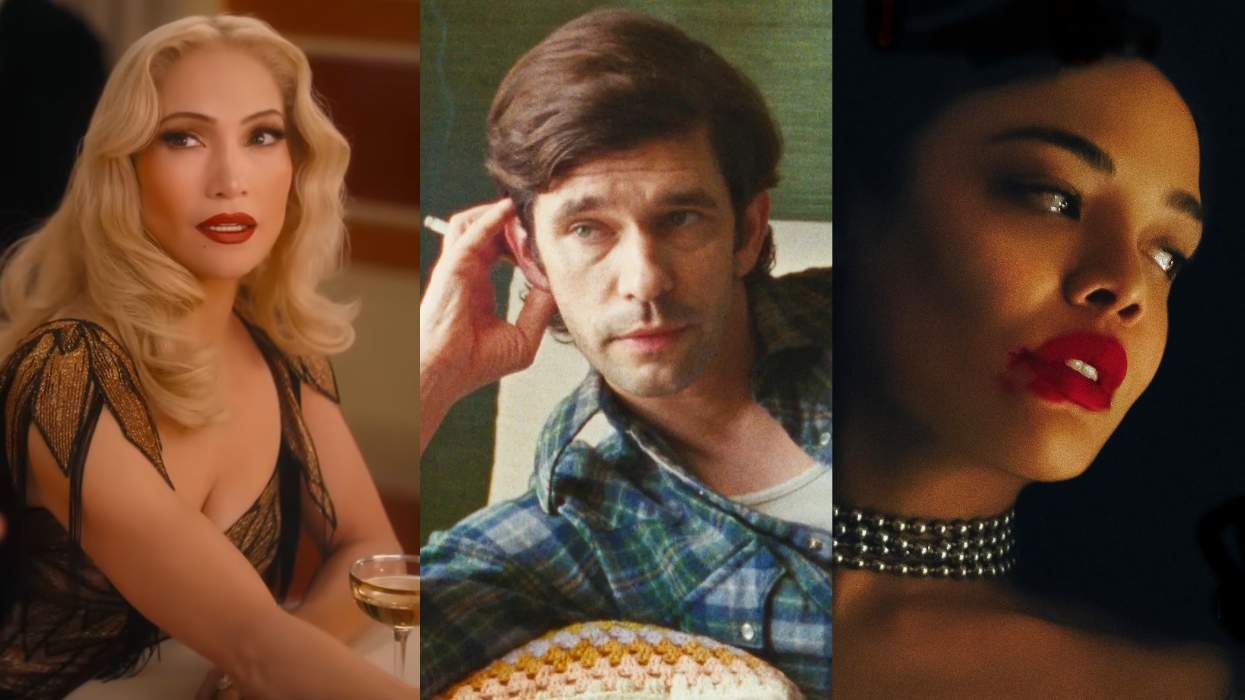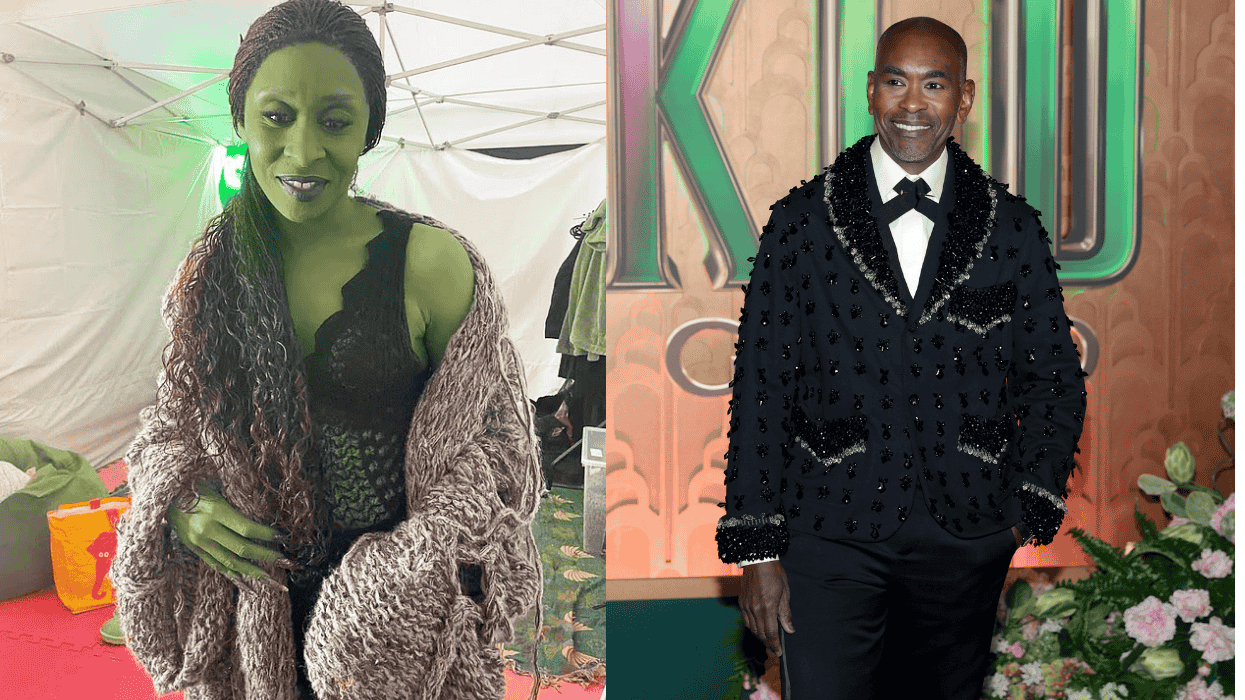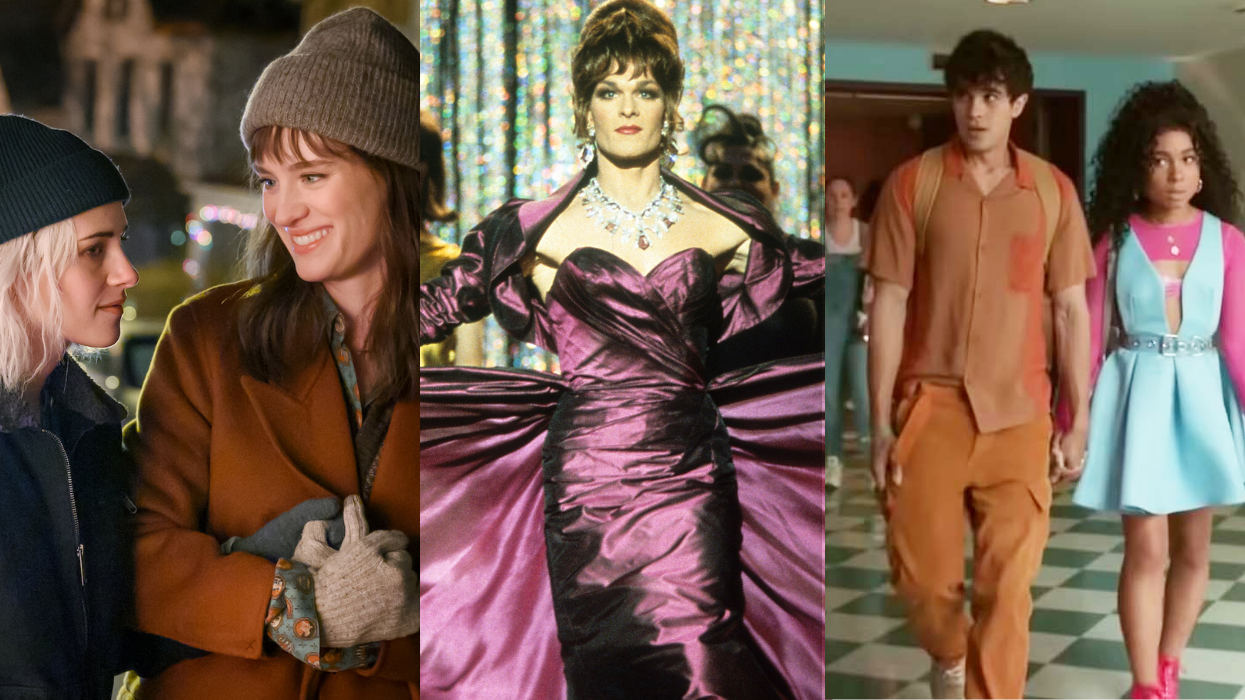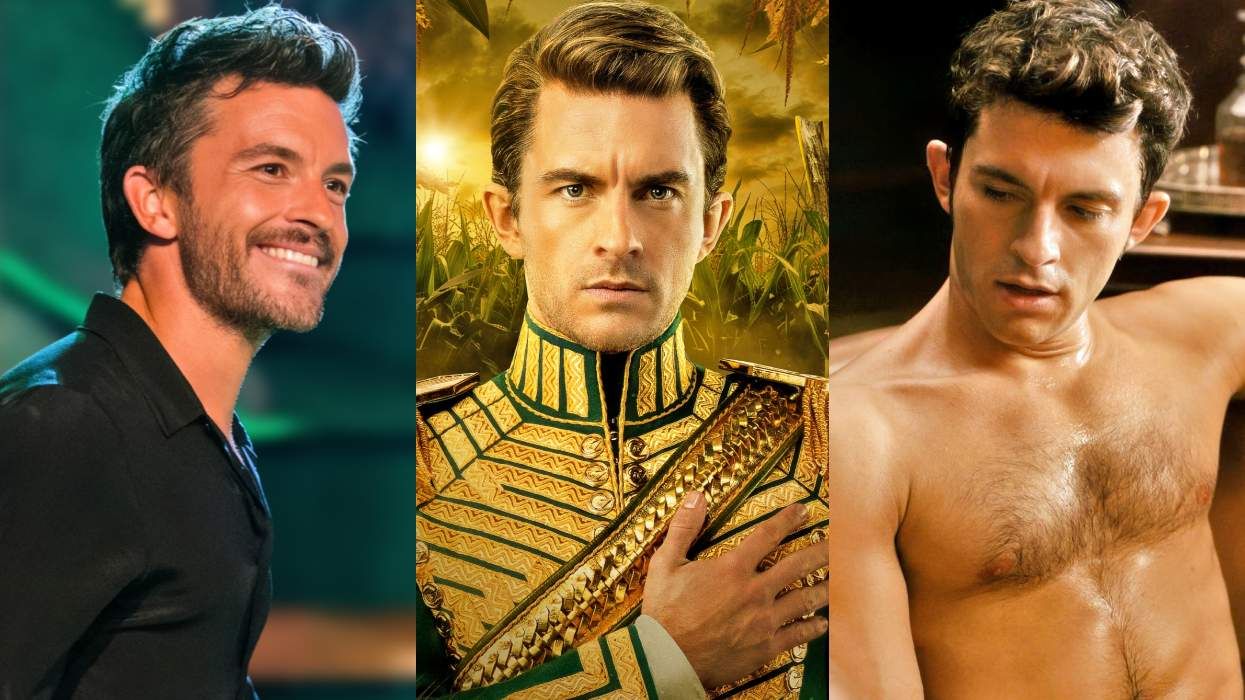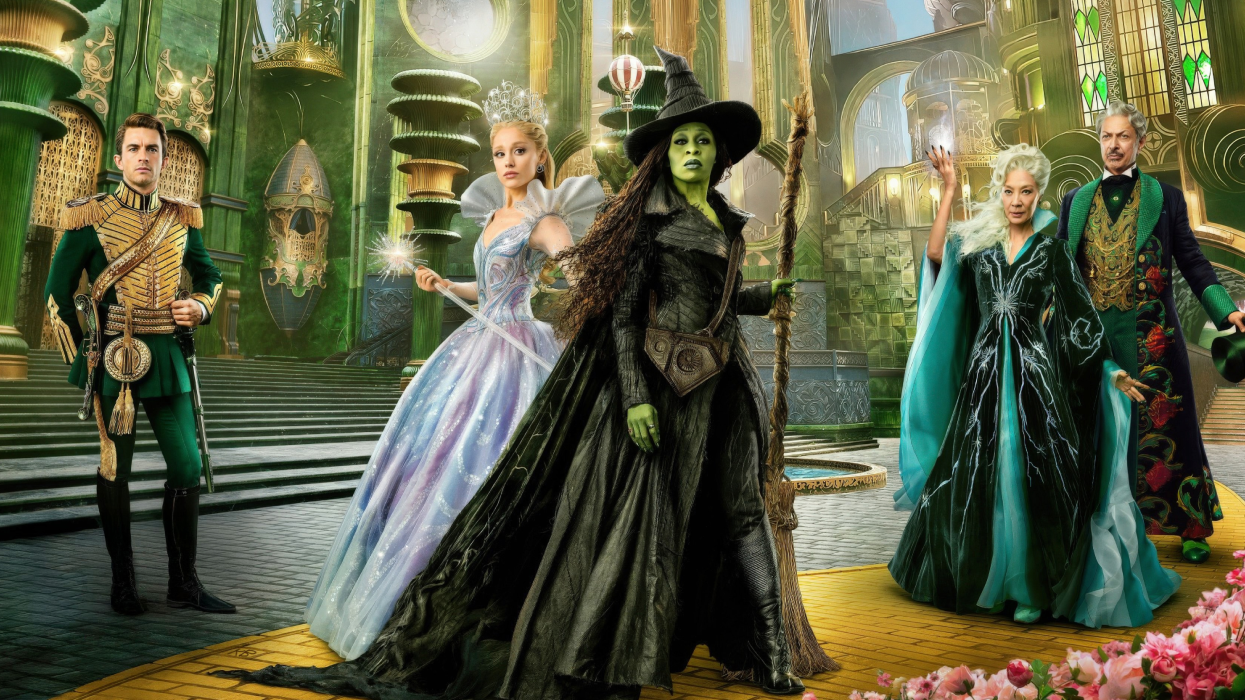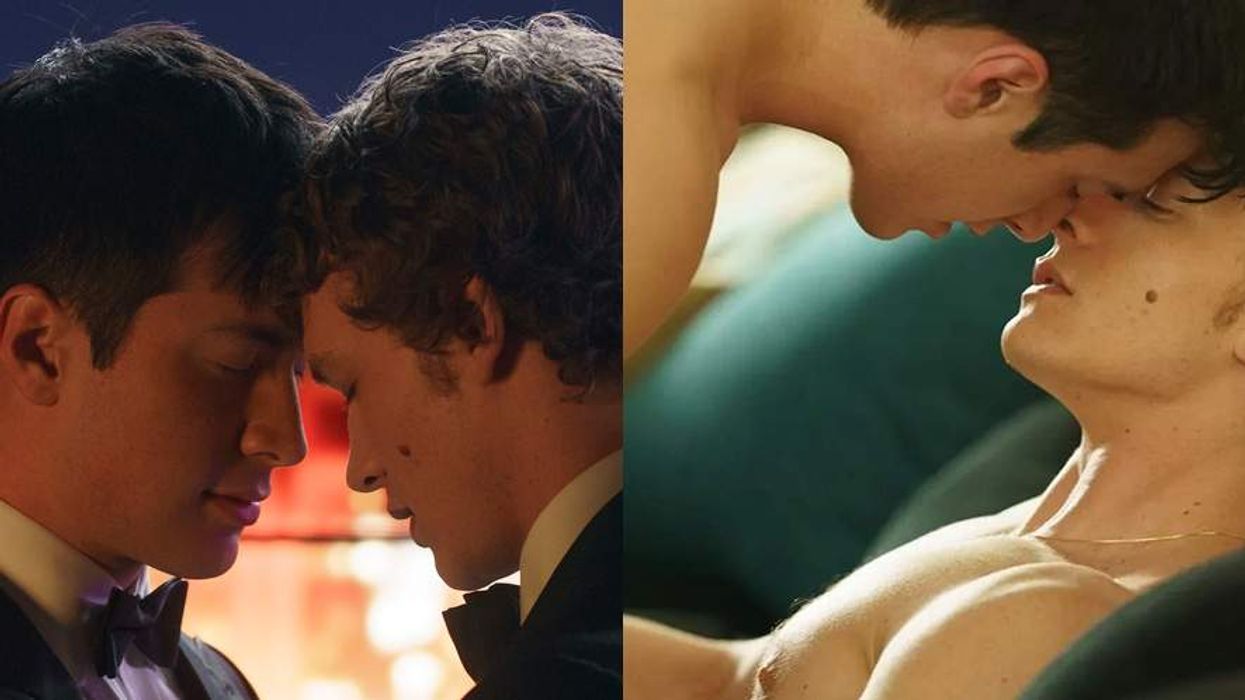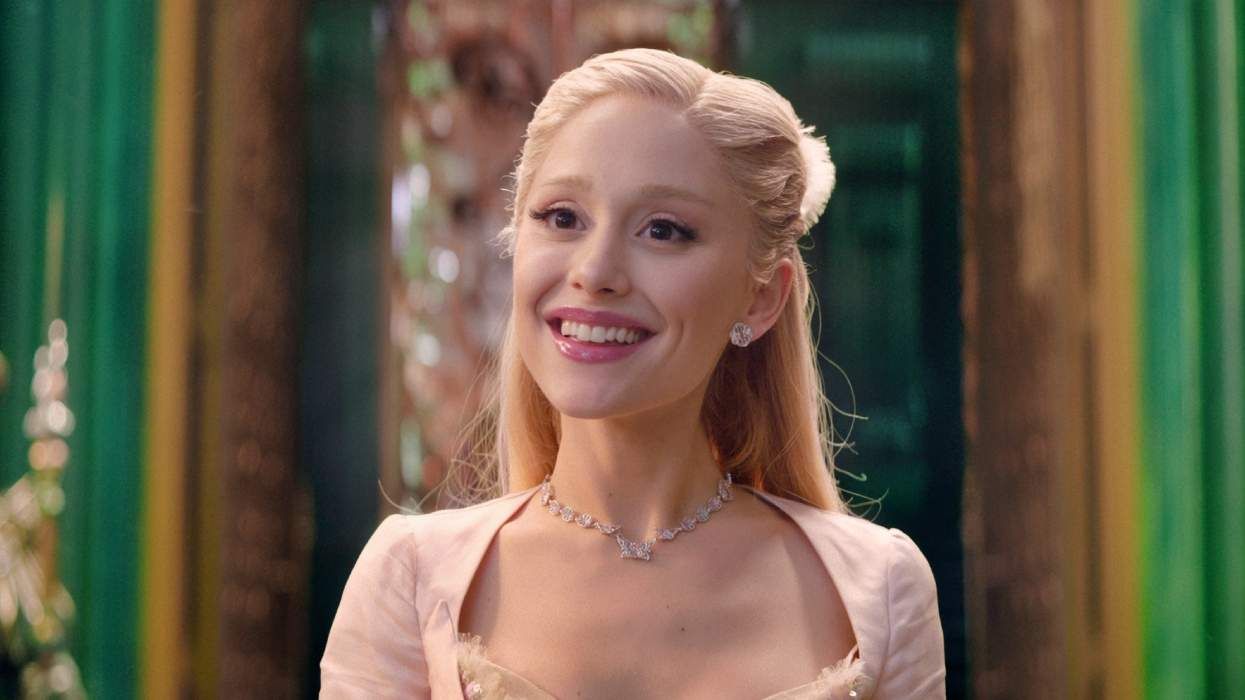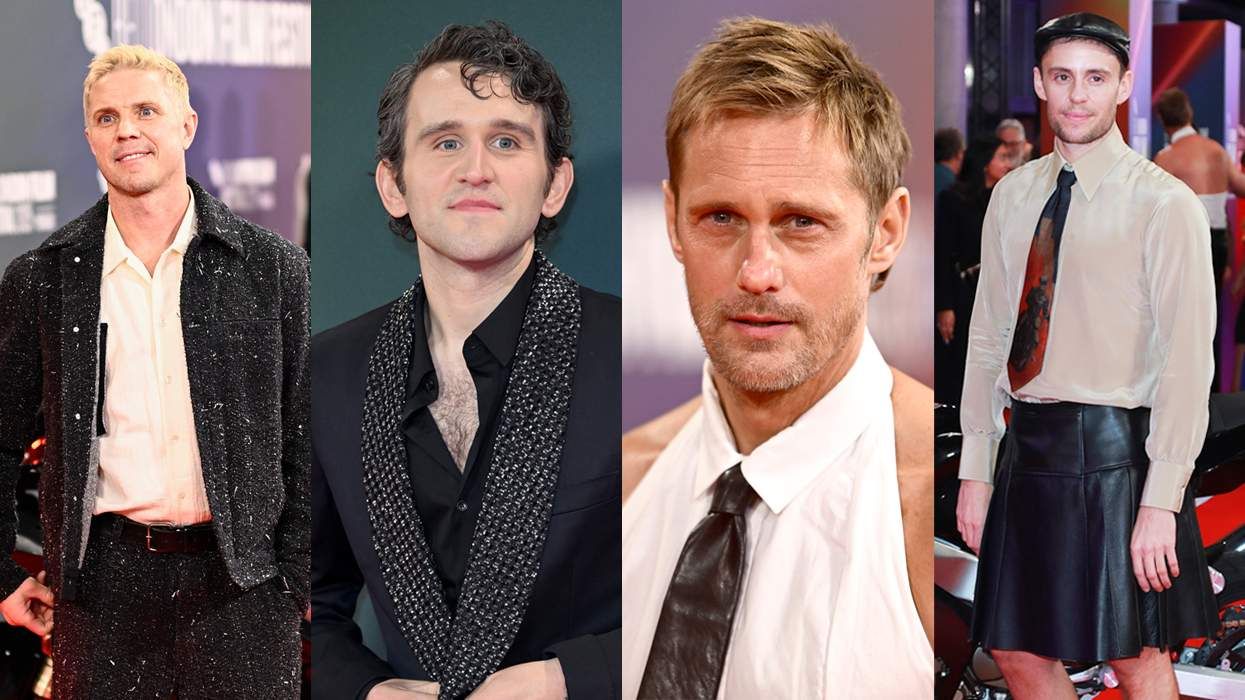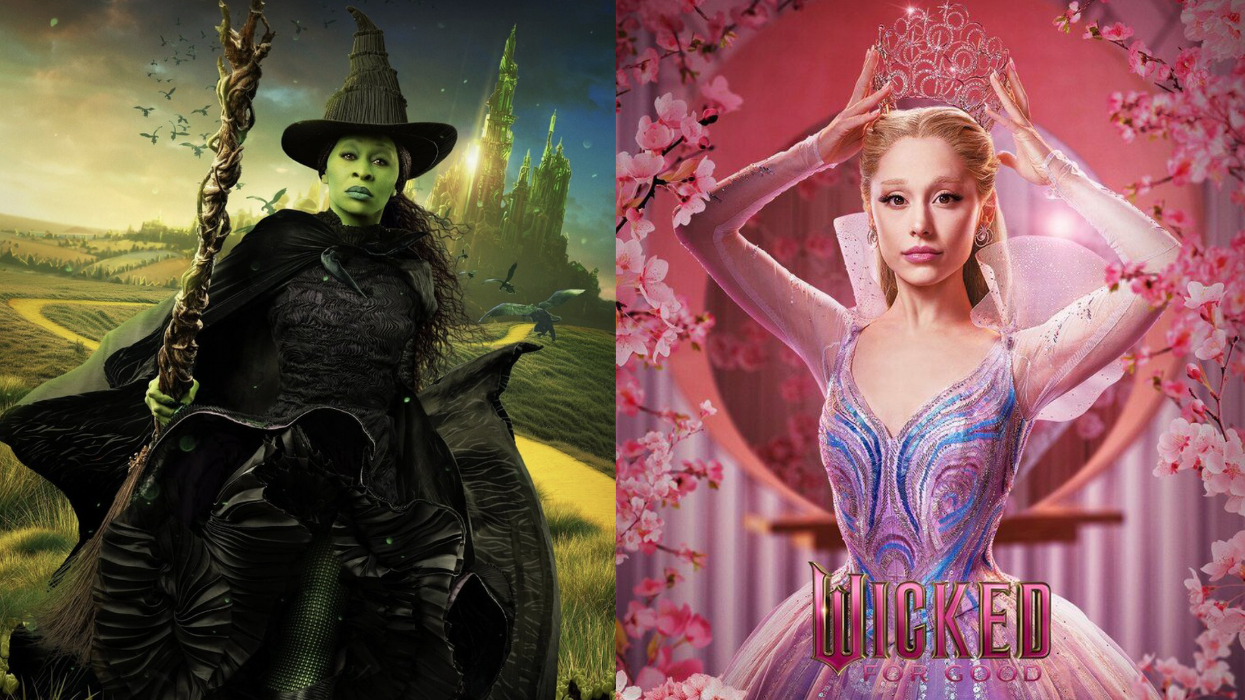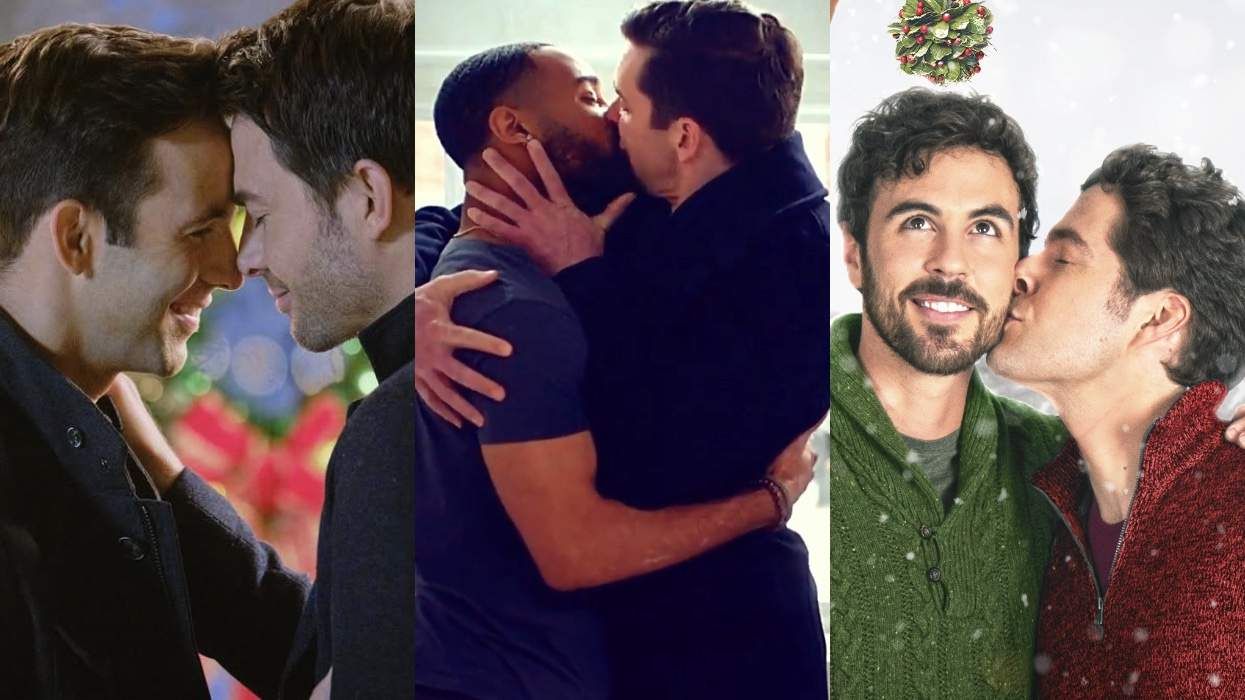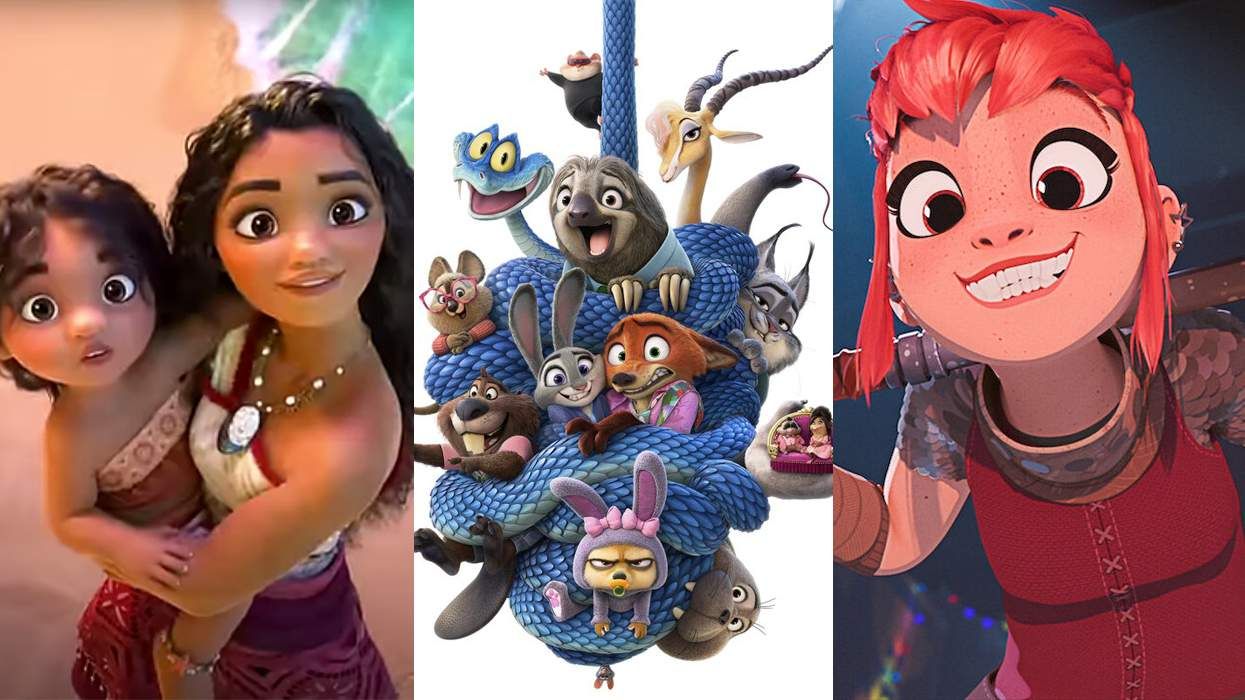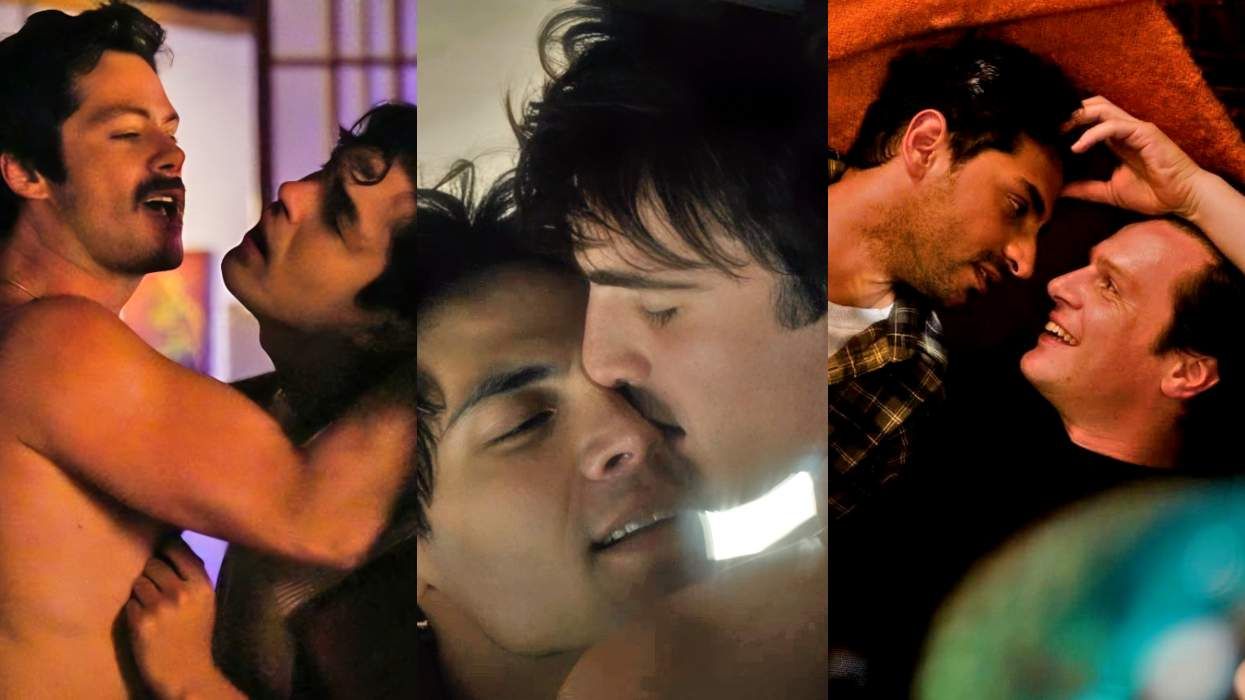When Gus Van Sant first tried to get My Own Private Idaho made, following the critical success of his film Drugstore Cowboy, the film's overt sexual themes and a script that called for unusual effects, such as time-lapse photography, confused many. "I wrote the script on my Mac and used 24-point font for sections, other parts in 10-point, and the opening scene is of Mike getting a blowjob in a hotel room," Van Sant explains by phone from his home in Portland. "It made certain people hesitate in the Hollywood community. I think largely it was the gay male hustler aspect. That wasn't a hot topic at the time."
Although "gay hustler film" may seem like a cliche genre at this point, when it was originally released in 1991, starring River Phoenix and Keanu Reeves in the central roles, no one had made a movie that addressed the subject with such blunt honesty. With a new Blu-ray version available from Criterion--that includes extras such as a discussion between Van Sant and Todd Haynes, another filmmaker who tackled gay themes in his films to critical acclaim--it's time for a new generation to discover one of the most groundbreaking queer films of the past 25 years and to appreciate how it helped make other pivotal cinema possible.
Out: First, I wanted to say that My Own Private Idaho was the first "gay" movie I ever saw, since it somehow ended up in the little shop where we could rent VHS tapes on the Air Force Base in Japan where I went to high school.
Gus Van Sant: Thanks, I hear a lot of different stories like that from certain generations, this story about it being their first gay film. My former assistant was from Birmingham, Ala., and he said seen it there before he'd come out.
New Line produced it, and they were like an avant garde indie film company (although they had done the Freddy Krueger movies and stuff like that), and they were impressing on me how, with their company, they would release it wide in Middle America. The idea that River and Keanu would be playing those roles helped ensure it would make waves in Middle America. It didn't quite work the way we had been promised because New Line created a new division, Fine Line, which was more about specialty films, so we were a bit disappointed about that. But it still seemed to get out there.
Although we know Keanu as a big movie star and River has become a legend, they weren't so big then. I had seen Keanu in Bill & Ted's Excellent Adventure and River in Stand By Me, but that was about it.
It helped getting the film made, but it also helped get audiences to watch it. They hadn't been in much, that's true: Keanu had been in River's Edge, and a few independent films, but River had never done anything like this. That's another reason it worked. It was also a comment on them as boy stars -- they were hustling in a different way, for the business.
As I was re-watching it, I thought of two later films that seem to have been influenced by Idaho, specifically Y Tu Mama Tambien and Brokeback Mountain, which both have two straight actors ostensibly playing men in love. Do you think we can say your film made those others possible?
I don't know about that. I'm sure it had some sort of relationship. I mean, Brokeback Mountain really came from the short story that was originally in the New Yorker. Larry McMurtry elected to make it into a film, and he wrote a screenplay on spec. I was involved in that for a while. The original short story was very austere, which was sort of like my film Gerry, two guys in the desert. Larry made Brokeback into something much bigger in his script. I'm sure he'd seen Idaho, but the original story, I'm not sure it had much to do with it.
RELATED | Brokeback Mountain: 10 Years On
Let's talk about the campfire scene, which is so incredible in large part because of River's performance. I became obsessed with it as a teenager -- perhaps because of someone like Scott, Keanu's character, saying, "Two men can't love each other," and having someone reply, "Yes, they can." It seemed so radical for us at the time since that was still an argument you'd hear a lot in the '90s. Can you tell me a little about writing and filming that scene?
The character that River was playing was meant to be a straight character, not a gay character. And River, he had two references for gay people from [Dogfight], his previous film: Bobby Bukowski, who was the DP and Matt Ebert, and he was in the art department. River brought Matt, who was also a member of ACT UP, with him, and he said, "River you have to play a gay character, you can't play a straight hustler." So some of the ideas and words behind what they are saying at the campfire were meant, in my original idea, to be about how their bodies weren't really their own. They were used for commerce, and they didn't have a particular sexual identity. One was bored and the other was saying, "No, two men can't love each other," which was a quote from a Walt Curtis short story about Walt's relationship with this guy named Raul he knew in Mexico and Raul said, "No, two men can't love each other."
But River was altered by this idea that his character Mike was a gay hustler. I was supportive of it, but it also sort of changed the way I thought of the character. It played differently, the way River was actually in love with Keanu and not just bored or wanting to do something in the middle of the desert.
What about the styles of acting? Keanu gives a very stylized sort of "Shakesperean" acting style and River is giving something very authentic and closer to realism. Is that something you wanted?
Keanu had done Shakespeare and River never had, so Keanu was maybe sometimes delivering as a character in a play, with an archness. I didn't mind that they went into full Shakespeare, because it was kind of like a warp in time: The street characters of Shakespearean times have a relationship to the street characters of modern times.
OK, a question about this particular Blu-ray release. There's an extra that is an audio interview from 1995 between JT Leroy, yourself and Jonathan Caouette. Since 1995, we know that JT Leroy is really Laura Albert, so I wanted to know how that happened and why it's included as one of the extras.
Originally it came out before JT was discovered to be Laura. The interview happened over the phone, since JT needed to be on the phone. I knew Laura as a character who was one of JT's friends, who was "played" [at events] by Savannah Knoop. I knew Laura, but I didn't suspect that she was writing the books. Some people didn't believe it, very few suspected. John Waters being one of them, who said, "I'm just not buying it." Now, half the people say they knew all along, but I certainly didn't. So that interview was part of it. It's also probably something JT instigated because she knew I was doing this Criterion talk and knew Jonathan, and probably rallied to for all us to be in a discussion -- because JT was supposed to have been a male hustler, so that was the continuity in what Laura was constructing.
I'm fascinated about the class differences between the two men in My Own Private Idaho and think it remains a hot topic, especially when arguments around the marriage equality battle come up. Or how people with wealth and privilege urge younger kids to come out, but they can be rejected and end up being homeless or sex workers or doing whatever they have to do to survive. Do you think that's a topic that should be tackled in some way in art or in film?
You can be from an upper class household and still be kicked out of your house or you can be from a lower class and be accepted. River's character represents a homeless kid, and Keanu's a rich kid.
[In the film], Keanu's character always had a problem, because he was from Shakespeare, and in the play, he's a prince and going to be a king of a country. We couldn't find the same thing in modern times. I found the mayor of Portland's son was gay, but he didn't necessarily end up on the streets. In Henry IV, Prince Hal is not a hustler, but he's hanging out on the streets with ne'er-do-wells and Falstaff and there are other characters along with him, Pistol being one of them, who I think would translate to River's character. It is looking at class in the Shakesperean sense, but it's not looking at class and saying things like, lower class kids shouldn't come out because they're vulnerable, and upper class kids have it easy. The film doesn't have it in mind, and I'm not sure how much I go along with that. Upper/lower and out/and not out isn't correct.
There's an aspect of the Scott and Mike character -- they are from different classes. I was going to try to make a TV show and use these characters and it was centering on these class differences. But reading into other sides of whether one class should be in the closet or not is not what I'd do.
Well, I think it's more about the responsibility to help when and if something goes wrong after urging someone to do something.
That goes for any political message, it can have weird ramifications.
Criterion's Blu-ray edition of My Own Private Idaho is available now. Watch an exclusive clip of a conversation between Todd Haynes and Gus Van Sant below:


